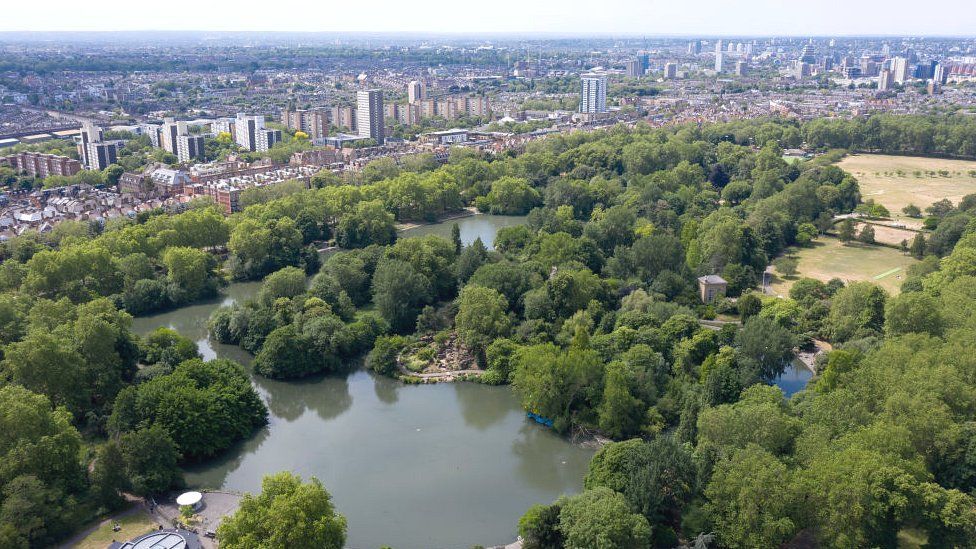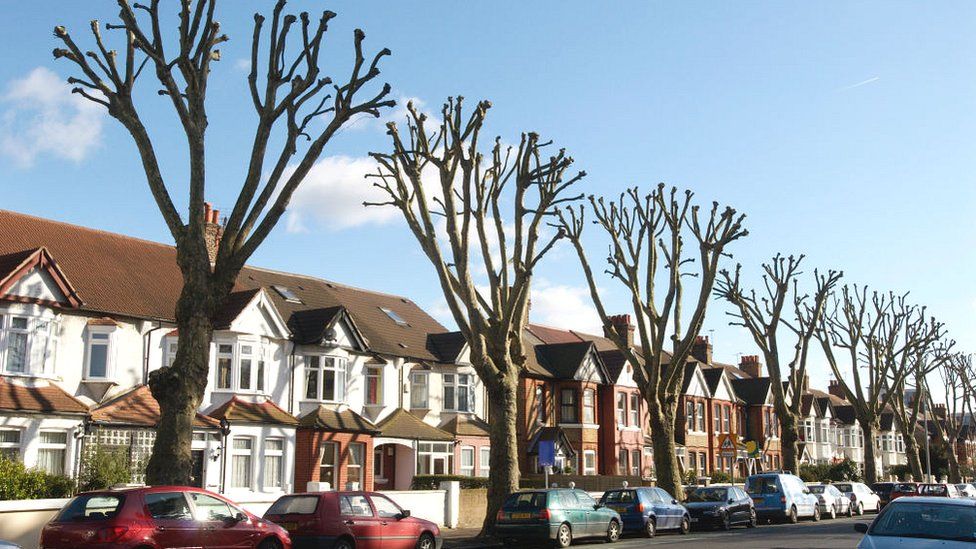 Getty Images
Getty ImagesClimate change threatens the health and survival of urban trees, with more than half of species already feeling the heat, according to a new study.
City-dwelling oaks, maples, poplars, elms, pines and chestnuts are among more than 1,000 tree species flagged at risk due to climate change.
Scientists want better protection of existing trees and for drought-resistant varieties to be planted.
Trees have cooling effects and provide shade, making cities more liveable.
Many trees in urban areas are already stressed because of climate change, and as it gets warmer and drier, the number of species at potential risk will increase, said Manuel Esperon-Rodriguez of Western Sydney University in Penrith, Australia.
City and street trees can improve physical and mental health, are important in social integration and can mitigate the effects of temperature rises – something that hit home during the pandemic, he said.
“All these benefits are mainly provided by big mature trees so we need to make sure that what we are planting today will get to that stage where they can provide all those benefits for future generations,” he told BBC News.

The researchers used the Global Urban Tree Inventory – a database recording more than 4,000 different trees and shrubs planted in 164 cities in 78 countries – to assess the likely impact of global warming on the trees planted along streets and in parks.
Of the 164 cities analysed, more than half of tree species are already at risk in some cities due to rising temperatures and changes in rainfall. And by 2050, this proportion is predicted to rise to more than two-thirds.
Climate risk for species in urban areas is particularly high in cities in tropical regions, and in vulnerable countries such as India, Niger, Nigeria and Togo.
In the UK, the researchers looked at five cities: Belfast, Birmingham, Bristol, London and York.
They found that drier weather under climate change is expected to have a big impact on trees, particularly in York, London and Birmingham.
The research is published in the journal, Nature Climate Change.
Follow Helen @hbriggs.








